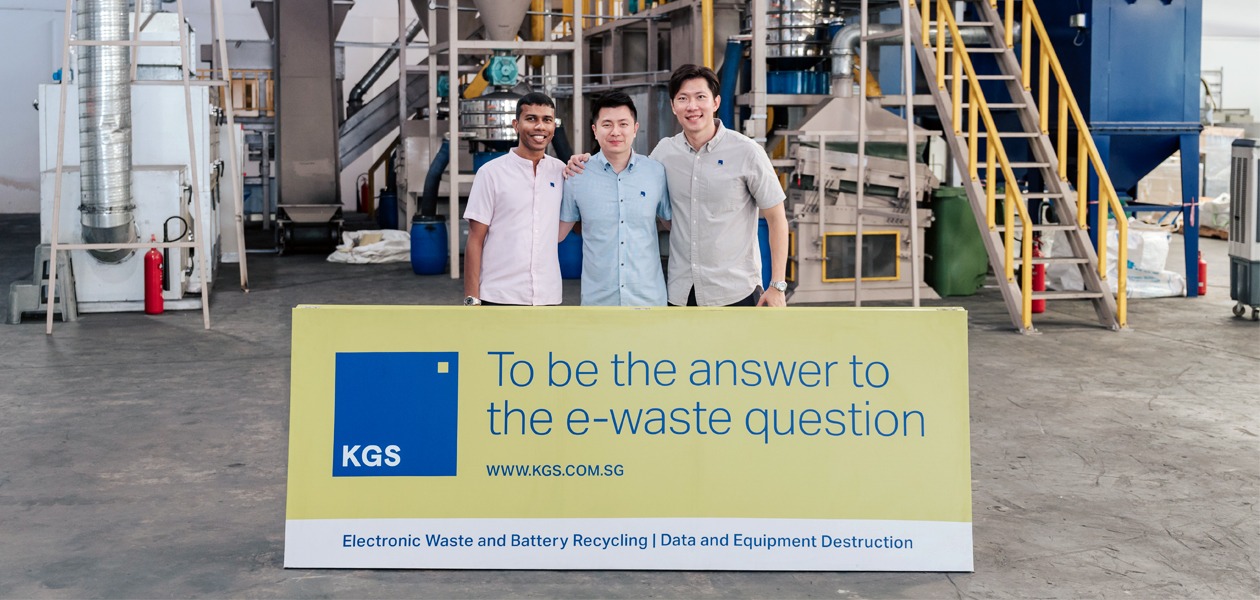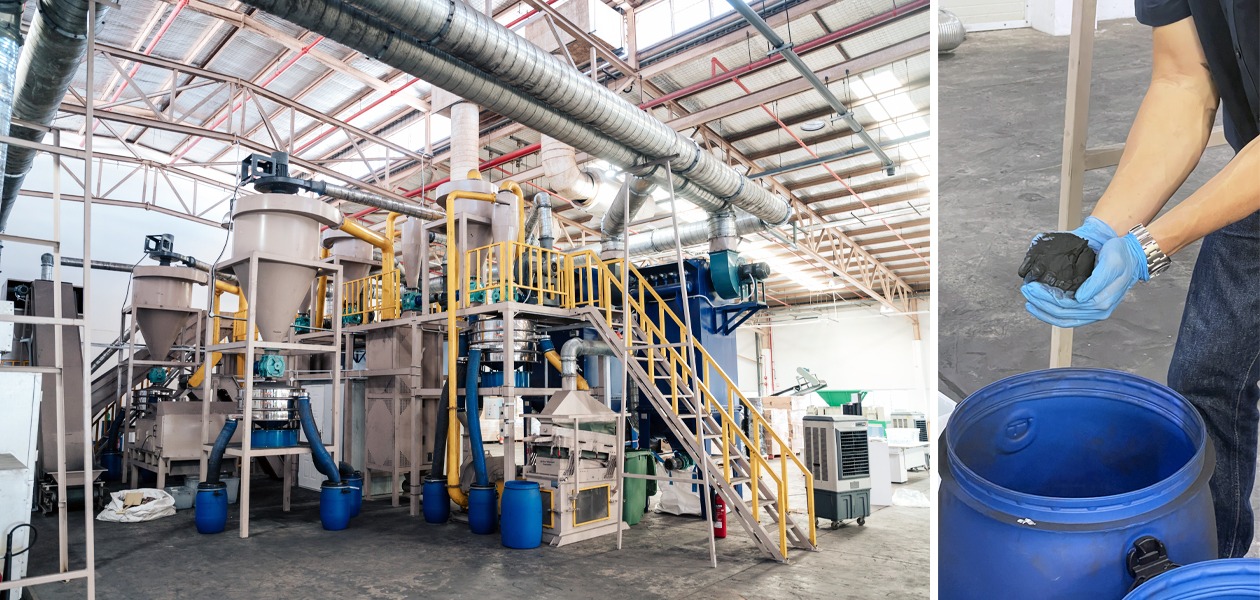Singapore-based KGS Pte Ltd partners with UK-based Altilitech Ltd under the UK–Singapore Collaborative R&D Call 2022 to advance lithium-ion battery recycling, powering a circular economy in the energy sector.
As nations all over the globe race towards net-zero emissions, sustainability is no longer a choice but an imperative. Singapore-based KGS Pte Ltd is leading the charge in such initiatives with its expertise in battery recycling and e-waste disposal. The seven-year-old company recently wrapped up a project under the UK–Singapore Collaborative R&D Call 2022, organised by Enterprise Singapore and Innovate UK and supported by IPI, with UK-based Altilitech Ltd to advance lithium-ion battery recycling.
Andrew Tay, Co-founder and Business Development Director at KGS, shared insights into this collaborative journey, highlighting how it aligns with the company’s overarching goal to advance the processing of lithium-ion batteries within the circular economy.
“Our goal was to partner with a technology provider who could deliver high recovery rates with minimal waste output. This is crucial in enhancing circularity in our economy, particularly in the recycling of lithium-ion batteries,” Tay said.
The Singapore-UK partnership zoomed in on the second stage of lithium-ion battery recycling—transforming the ‘black mass’, a by-product of initial recycling processes, into materials ready for new battery production. This effort is driven by KGS’s commitment to finding an end-to-end recycling solution for the batteries, which should also be flexible enough to keep pace with the ever-evolving battery-recycling landscape.
“Our decision to partner with Altilitech was driven by a shared vision of continuous innovation and adaptability in the face of evolving technologies,” Tay shared, underscoring both companies’ goal of staying at the forefront of their industry.
The collaborative journey, however, has not been without hurdles. Challenges such as feedstock limitations delaying the R&D process have cropped up, but the positive and cooperative spirit of both parties has been instrumental in navigating and overcoming these challenges.
IPI’s role in facilitating this collaboration has been pivotal, Tay acknowledged. “They took the time to understand our specific requirements, offered us valuable insights and guidance and facilitated the connection with Altilitech, all of which significantly advanced our cause,” he added.
The project centred on a feasibility study using waste battery black mass prepared by KGS, tested Altilitech’s proprietary hydrometallurgical process—designed to recover precious metals with high efficiency. KGS’s expertise in processing various lithium-ion battery chemistries was crucial to the project’s success. The project also deepened the Singaporean company’s understanding of the battery-recycling process and positioned it to explore exciting new business opportunities.
Following the successful completion of the feasibility study, KGS has officially launched its state-of-the-art facility for battery pack disassembly and crushing, bolstering its capabilities in battery recycling. The partnership’s success has also led to an impressive sales forecast for the company, highlighting the commercial viability of its sustainable practices.
KGS’s journey with Altilitech, underpinned by IPI's support, exemplifies the transformative impact of cross-border collaboration in powering innovation and sustainability. IPI’s involvement in facilitating these partnerships has been crucial—providing opportunities for local companies like KGS to partner with global innovators. This support helps SMEs and start-ups to develop, test and eventually commercialise new products and services.


